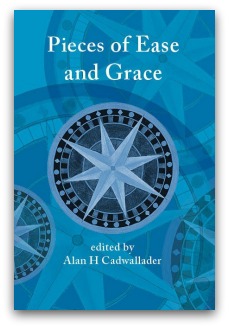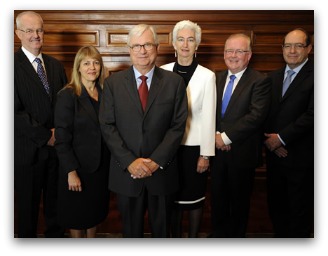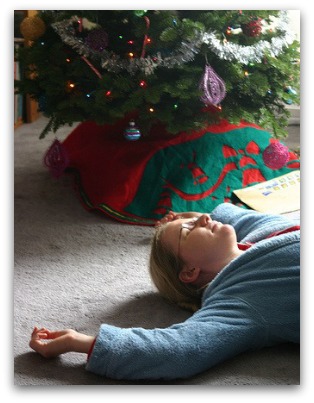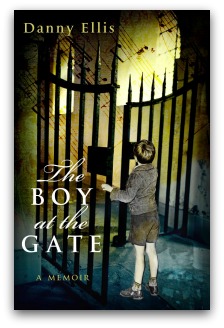Keywords: Christian Brothers
-

RELIGION
- Frank Brennan
- 23 May 2013
2 Comments
Fr Frank Brennan's keynote address at the Archdiocese of Canberra and Goulburn Clergy Assembly, St Clement's, Gaylong, on 22 May 2013
READ MORE
-

RELIGION
- Michael Kirby
- 22 May 2013
32 Comments
The 2011 book Five Uneasy Pieces offered an alternative reading of the so-called 'clobber passages' that are at the core of religious unease about homosexuality. A follow-up volume pushes the envelope further by examining the biblical recognition of the variety of human love beyond traditional marriage.
READ MORE 
-

RELIGION
- Fatima Measham
- 12 April 2013
14 Comments
The Church is unique among the institutions under scrutiny from the Royal Commission. The trust laypeople hold in priests and other vowed religious is not the same trust held in teachers, doctors and coaches. It is sourced from the stories that feed their faith. This is the context in which the betrayal must be understood.
READ MORE 
-

RELIGION
- Frank Brennan
- 18 March 2013
3 Comments
Change is upon the Church. Just recall the scene when the new pope emerged on the Vatican balcony. He appeared with none of the papal trimmings of office, and did not once did he refer to the papacy. Could something of this new papal style help Catholics engage more creatively with their fellow citizens? Text from Frank Brennan's lecture 'How Can the Catholic Church Contribute to a Better Culture for Life?'
READ MORE
-

ARTS AND CULTURE
- Ellena Savage
- 21 December 2012
2 Comments
My most vivid childhood Christmas memories have little to do with Christmas. In one, I'm rifling through the antique wooden bowl beside my grandmother's fireplace, finding hundreds of ancient marbles. They glow in the amber light that spills through the hand-crafted lead-glass lights. I don't even remember the presents I got that year.
READ MORE 
-

ARTS AND CULTURE
- Frank O'Shea
- 24 October 2012
8 Comments
In their stylish red and blue uniforms, they were a central part of big football games. They played before the game and at half time, led the teams in a formal march, 60 or more kids blowing brass and beating drums. The thousands in the stands were unaware of the harshness that these boys faced every day.
READ MORE 
-

RELIGION
- Frank Brennan
- 24 September 2012
10 Comments
'Looking to the future, I want to focus on the role of the laity in the growing absence of priests. And I want to insist on the need for due process, transparency and respectful dealing within the Church.' Full text of Fr Frank Brennan SJ's presentation 'Looking Back and Looking Forward Over Church and Life on the 50th Anniversary of Vatican II' at the Spirituality in the Pub Goulburn Valley Annual Dinner, 21 September 2012.
READ MORE
-

EDUCATION
- John Warhurst
- 09 July 2012
10 Comments
Labor speechwriter Graham Freudenberg observed that ‘the oldest, deepest, most poisonous debate in Australia has been about government aid to church schools’. The most dramatic episode in the history of church state relations in Australia was the Goulburn schools strike, which took place 50 years ago this month.
READ MORE 
-

RELIGION
- Frank Brennan
- 24 May 2012
44 Comments
Bishop Morris wrote at considerable length to Archbishop Chaput, in a highly respectful and fraternal tone. To be fair to Chaput, I will quote his breathtaking response in full. It illustrates what still passes for due process and pastoral care in the Roman Church. We have to insist on something better. And with greater transparency, we will get something better.
READ MORE
-

RELIGION
- Frank Brennan
- 26 April 2012
4 Comments
'This Jesuit network will not succeed where Copenhagen failed, but it is an incremental contribution to one of the great moral challenges of our age [climate change].' Text from Frank Brennan's paper 'An interpretation and a raincheck on GC 35's call to develop international and interprovincial collaboration', Boston College, 28 April 2012.
READ MORE
-

EUREKA STREET TV
- Peter Kirkwood
- 20 April 2012
6 Comments
READ MORE 
-

EUREKA STREET TV
- Peter Kirkwood
- 20 April 2012
Leading biblical scholar Frank Moloney reflects that after the 16th century council of Trent, 'which was a reaction to Protestantism', there was a tendency within Catholicism away from the Bible and 'into a more defensive way'. While focus was placed on strengthening the hierarchy, the Bible 'dropped out of the Catholic life'.
READ MORE 